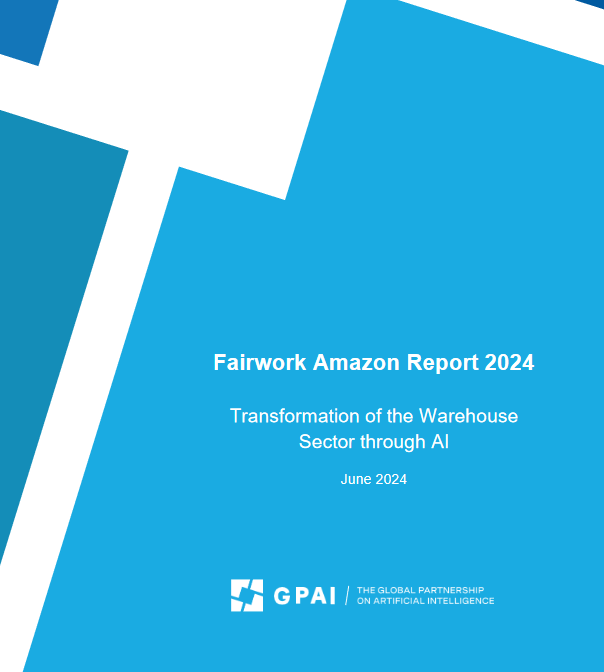

Find out more about the principles used to calculate these scores.
Find out about the facts that we take into account in our assessment.
The report ranks platforms against five principles of fair work, giving each company a score out of ten. Pedal Me topped the ranking with a score of 8 out of 10, followed by Getir (7) and Stuart (5). The study found that most other companies, such as Deliveroo, Just Eat, and Uber, could not prove they meet basic standards of fair work – such as ensuring all workers earn above the national minimum wage.
However, through dialogue with Fairwork, some platforms like Stuart or Getir have made changes to their policies and practices that will improve conditions for workers.
Read about our 12 Policy Recommendations to Protect Platform Workers in the UK.
The Fairwork UK team regularly engages with policymakers to advocate for extending appropriate legal protections to all platform workers, irrespective of their legal classification. We will continue our policy advocacy efforts in the coming years to help ensure that workers’ needs and platforms’ business imperatives are effectively balanced.
In Februrary 2021, Fairwork researcher, Kelle Howson, was invited as an expert witness on panel for House of Lords COVID-19 committee, on digitalisation and the future of work. The resulting report included key recommendations based on Fairwork’s input, including that “The Government should introduce new legislation to provide platform workers with defined and enhanced employment rights”
Watch a clip of Kelle Howson’s comment to the House of Lords COVID-19 committee.
Talk: Fairwork in an Unfair World – Dr Matthew Cole
The economic aim of the platform is to profit through the infrastructure that they have created, extending the logic of capital to commodify activities and networks that were previously outside the market space. Platforms tend to scale rapidly beyond national boundaries and regulations, which many take advantage of to drive down labour costs, undermining hard-won social protections for workers. The Fairwork project aims to counter the power of platform capital by highlighting the best and worst management practices while advocating for more a more just and sustainable working life.
What is it like working for Uber, Stuart or Deliveroo? Listen to the Fairwork Podcast series and explore the radical changes to the world of work through the voice of those at its centre.
010: Kids These Days… (Interview with Eve Livingston)
On this week’s episode of the Fairwork podcast we welcome Eve Livingston. Eve is a writer based in Glasgow, whose book ‘Make Bosses Pay: Why We Need Unions’ was released by Pluto Press in Autumn 2021. Our conversation looks at contemporary trade unionism, it looks at what is holding unions back, as well as what they could achieve.
006: The UK Gig Economy
To mark the release of the first round of UK scores, this week on the Fairwork podcast we are joined by Alessio Bertolini – a post-doctoral researcher at Fairwork. Alessio is here to help us understand the gig economy in the UK, where did the gig economy comes from? What decisions led us to this point? And what does the future holds?
005: Pay
This week on the Fairwork podcast, we hear the story of Ethan Bradley, a Deliveroo courier based in the North East of England. We look at issues related to pay, what it is like working under a piece rate system, the mental stress attached to this, and how it shapes your experiences of your work. We also hear from Matt Cole, a researcher at Fairwork and from Emiliano Mellino of the Bureau of Investigative Journalism about their recent investigation into hourly pay for Deliveroo riders across the UK.
Francis Scaife works as a courier in the North East of England, in their home town of Teesside, a town heavily effected by deindustrialisation. Working as a courier for the gig economy platform Stuart provides Francis with a vital source of income in a time of huge national economic insecurity, but more than this it gives them a sense of purpose, drawing them out their house and into their community. This episode looks at management, what’s it like working through a platform, where the principal colleague you’re working with is your smartphone? And how do you deal with the problems you encounter in your working day when you have no human manager to turn to?
This episode looks at contracts and in it, we hear from Yaseen Aslam, the former Uber driver who successfully took them to court over his classification as a self-employed independent contractor, a ruling that has implications for gig workers in the UK and beyond. We hear Yaseen’s personal account of a case that has made headlines around the globe. We find out what it is like taking on a multinational corporation, organising gig workers in the UK, and what inspired him to do it.
In this episode we here from Aziz – a pseudonym – a ridehail driver in London. We explore what it is like working during a pandemic, serving your community and keeping the country running. How do you deal with sickness and the need to self-isolate in the absence of official protections? And how do you navigate the daily difficulties you encounter on the streets, when no one’s got your back?
In 2016, the headlines erupted with news that Deliveroo riders in London were on strike. This was the first time that workers in the gig economy had mobilised in the UK, taking to the streets to make their voices heard. The events that took place that summer shaped the lives of workers in the gig economy to this day and we’re still coming to terms with the ramifications of its successes and failures. In this episode, we hear from Mohaan Biswas about his first-hand experience of the strikes. We explore what it’s like trying to organise and negotiate with gig economy platforms. What are the difficulties of talking with a company that doesn’t legally employ you? And what happens when hundreds of workers come out from behind the screen to make their voices heard?